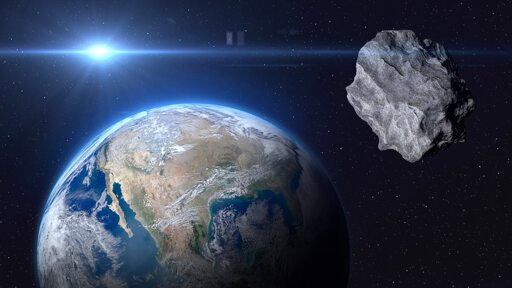Summary
A 27-inch asteroid, C0WEPC5, entered Earth’s atmosphere over Siberia on Tuesday, creating a harmless but visible fireball.
This marked Earth’s fourth detected asteroid strike of the year and only the 11th “imminent impactor” ever recorded.
The asteroid was detected by the Kitt Peak National Observatory ahead of impact, showcasing advancements in asteroid detection.
Separately, a larger asteroid, 2020 XR, measuring 1,200 feet in diameter, will safely pass Earth on Wednesday at a distance of 1.37 million miles.



Comparing a 27" asteroid and a 1200’ asteroid as comparable seems wack
At least they didn’t use metric.
Anything but metric, bro. How many bison could fit into that asteroid?
I can’t remember, I actually only use metric now. I think you need to convert asteroids to hogheads first, if they’re tobacco that’s 1000 lbs per hogshead. Frankly it makes my head hurt.
As an American I have no idea why we don’t use metric.
I don’t understand why imperialists decided to use one apostrophe to indicate the larger unit and two to indicate the smaller unit. It makes no bloody sense.
There’s a long list of things we do that make no sense. We’ve got damn good food though
Uh I’d just like to point out that a meter is m and a milimeter, which is shorter, is mm. So y’all apparently don’t make any bloody sense in metric either.
’ = foot
‘’ = foot foot?
mm = meter meter so 2 meters amirite?
Making fun of the imperial system is an old game and so easy to play that I’ve never seen anyone actually lose at it, until now. LOL
says “mm = millimeters” next response “mm = meter meter”. Good troll. Truly outwitted yourself there.
Reaching. Anyway…
The impacts are not comparable but perhaps in terms of detection methods they are handled mostly the same. On the one hand, being able to detect a 27 inch asteroid doesn’t matter much but on the other hand, if you can detect something that small, maybe you can detect anything that does matter. Unfortunately, I don’t think asteroid size is the only factor in detectability. A lot of it has to do with which direction it is coming from and if that is functionally obscured by the Sun or other objects.
The point is, if they could detect a 27” asteroid, something bigger won’t be an issue [for detection].